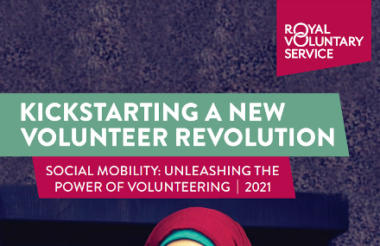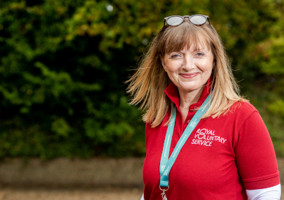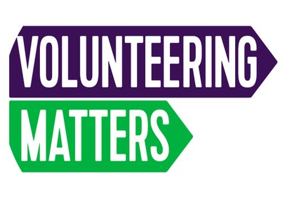Volunteering is often seen as a “closed shop” and charities need to do more to involve people from underrepresented groups who could most benefit, according to a new report.
Earlier this week Royal Voluntary Service (RVS) published Social Mobility: Unleashing the Power of Volunteering, which argues that volunteering can help people gain new skills and find employment.
But it says charities and others need to do more to reach out those who do not see volunteering as something for them.
The report says that in the wake of the pandemic there is an “opportunity to do things differently” and make sure “volunteering provides opportunities for everyone who wishes to develop and grow while helping others at the same time”.
Researchers carried out a literature review and then surveyed 1,000 people who had recently volunteered with RVS.
New skills
Nearly one third of respondents felt volunteering made them want to learn a new skill, with 65% of these going on actually learn one.
Volunteering also inspired people to go on to formal education, with 63% of those who said they wanted to go to college for the first time doing so.
“Volunteering acts for many volunteers as a push to engage in additional skill development – a key driver of social mobility,” the report finds.
Younger volunteers were particularly enthusiastic about how volunteering had helped them into employment.
More than a third (34%) of volunteers in the study aged 16-19 said that volunteering helped them get their first job. For those in their twenties the figure was 22%.
Barriers
However, the report says there are two main barriers to overcome.
Firstly, “volunteering alone does not provide all the skills and experiences that make someone employable”, it says.
This means organisations need to look at how they can work with others to link volunteers up with other suitable opportunities.
Secondly, it highlights that “volunteering does not always reach the people who need this catalyst and support network the most”.
The report says “more linked-up thinking is required” to make volunteering something that more people perceive as being available to them.
‘Closed shop’
The report suggests ways organisations could do more to support current volunteers and reach out to others.
“To really contribute to the levelling up agenda – to support social mobility for all – volunteering needs to do more,” the report says.
It explains that volunteering is “seen as something of a closed shop” but says there are some steps to improve access.
The report sets out a four-point blueprint:
- Find and celebrate the double benefit – embrace the development opportunities for volunteers.
- Make sure everyone can benefit – reach out to underrepresented groups.
- Make pathways to employment clear and specific – show how skills can transfer to paid work.
- Work in partnership – build relationships with other charities, businesses and the public sector.
Catherine Johnstone, chief executive of RVS, said in the foreword: “I have always believed that volunteering has great power to transform lives – both for those needing a helping hand but also for those giving a helping hand.
“However, those with most to gain from the benefits of volunteering are least likely to be volunteers. So, I want to address this.”
Related articles












